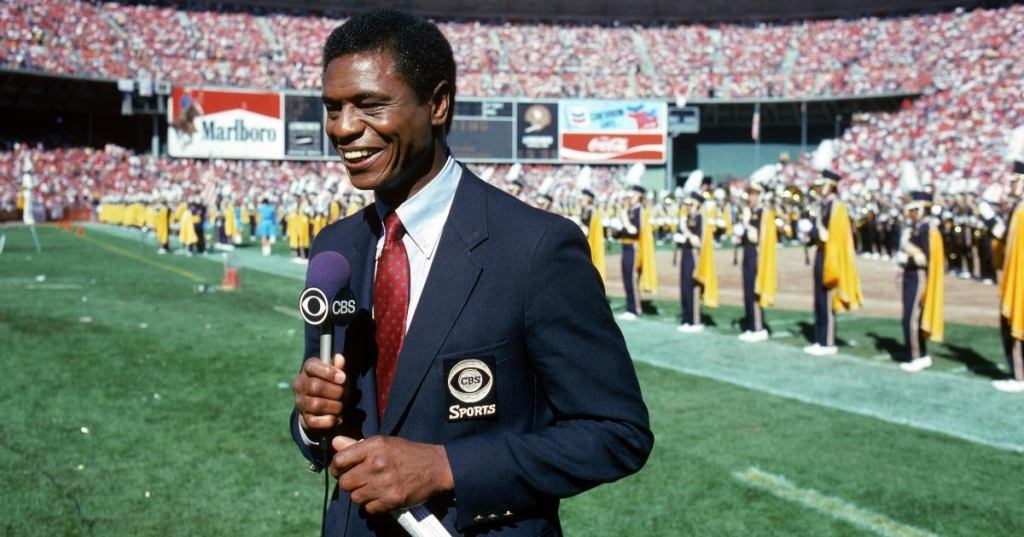Former NFL star Irv Cross, who became the first Black man to work full-time as a sports analyst on national television, died on Feb. 28, 2021. This week, Boston University researchers revealed that Cross suffered from stage 4 chronic traumatic encephalopathy (CTE), according to the Associated Press. Stage 4 is the most advanced stage of CTE, showing the damage that often causes behavioral and cognitive in those exposed to repetitive head trauma.
Cross’ wife, Liz Cross, said her husband would sit in a chair and grimace in pain from the headaches that wouldn’t go away. The former Pro Bowl cornerback was diagnosed with mild cognitive dementia in 2018 and would suffer from depression, mood swings and memory loss. “He really didn’t want to be with people,” Cross said. “The only person he wanted to be with was me. When he was with me, he really didn’t want to be with me. He just wanted me to be there.”
Videos by PopCulture.com
The Boston University CTE center said it diagnosed 345 former NFL players with CTE out of the 376 former players who were studied. The disease can only be diagnosed after death. “He was the nicest, kindest, most helpful, wonderful man I ever met,” Cross said. “But that wasn’t who he was at the end. And that wasn’t who he was. It was the disease that did that.”
Cross began his NFL career in 1961 with the Philadelphia Eagles. He spent five seasons with the Eagles before joining the Los Angeles Rams in 1966. Cross returned to the Eagles in 1969 before retiring in 1970. He then became an analyst for CBS Sports in 1971. He left the network in 1994 and later served as the athletic director at Idaho State and Macalester College in Minnesota. Cross’ impact in broadcasting led to him receiving the Pro Football Hall of Fame’s Pete Rozelle Radio-Television Award in 2009.
“Being out and doing your reports with the athletes gave me a lot more insight,” Cross said in an interview with The Athletic in 2020. “I’d spent time with whoever the top player was that week, or whatever the major theme was for that week, and do those stories. And you really get close to the athletes when you do things like that. Normally we’d go out on Monday or Tuesday, be on the West coast for two or three days to put together a feature story before you’d get back. … You’d get with the guy’s family. You’d have a chance to talk about personal issues-many of which I didn’t say much about on the air because they were personal.”









